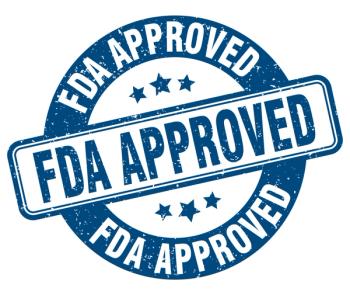
This device offers peace of mind to patients at home
Picture this: A patient with a chronic disease answers questions about his condition via a countertop appliance at home. The answers are sent to a center staffed by nurses and other health professionals who monitor the patient's symptoms, vital signs, and medication use. If a problem is brewing, the professional informs the patient, his or her family caregiver, doctor, and/or pharmacist.
Picture this: A patient with a chronic disease answers questions about his condition via a countertop appliance at home. The answers are sent to a center staffed by nurses and other health professionals who monitor the patient's symptoms, vital signs, and medication use. If a problem is brewing, the professional informs the patient, his or her family caregiver, doctor, and/or pharmacist.
To introduce the product to patients, the company recently kicked off an ad campaign that includes radio and print ads, direct mail, and brochures. The print ads are appearing in Sunday circulars and in USA Weekend.
Mault pointed out that many patients who use the appliance may previously have been hospitalized. He believes the product will appeal to the patients' caregivers, many of whom are baby boomers who are part of the sandwich generation with young families of their own. "Caregivers of patients who have recently been discharged from the hospital with serious health problems can rely on the monitor to make sure that their loved ones are taking their medications and that they will be notified before a serious problem arises," he said.
The patients' answers to a series of questions are monitored by nurses and other health professionals. "They will be looking at answers every day, and if there's a flag, a red alert draws the attention of our monitoring center. Based on permissions given by the patients, we can call their doctor or son or daughter and let them know that the patient is developing symptoms," said Mault.
So how much does this peace of mind cost? The device carries a price tag of $99, and there is a $49.95 monthly monitoring fee. However, until the end of the year, a $75 mail-in rebate is available when the monitoring service is activated with a year's subscription.
Pointing out that the countertop appliance does not require the user to have a computer or Internet connection, Mault said the device is easy to use. It has a large display with big letters and four buttons.
Patients are supposed to answer eight to 10 questions per day that pertain to their condition and the medications they are taking. Mault gave an example of questions directed at an asthmatic patient. The appliance would ask: How is your breathing today-good, bad, or worse? What's your peak flow meter rating today? Did you use your inhaler today?
"We've developed health monitoring programs that are taken from the practice guidelines from each of the medical societies and expert panels," said Mault.
When queried about his projections on whether or not patients will be compliant, Mault said, "This system has been in use at the VA. We took this system and added our ability to make medical devices and combined that with the monitoring center and health program and created a single solution that is now available directly to consumers. The device has been used by about 20,000 patients in hospitals over the past four years. We have data showing a very high compliance rate with this appliance."
While the company has developed 44 categories to monitor as well as a full medication therapy management program that can be monitored, Mault said the categories being launched with CVS include the following: high blood pressure/hypertension, coronary artery disease, COPD-emphysema, asthma, and diabetes.
Newsletter
Pharmacy practice is always changing. Stay ahead of the curve with the Drug Topics newsletter and get the latest drug information, industry trends, and patient care tips.























